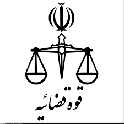خلاصة:
اساس جرایم عمدی بر وجود اراده استوار است. شخصی که در ارتکاب رفتار خود، سوءقصد مجرمانه نداشته باشد، عرفا و قانونا شایسته مجازات نیست. علم به اوضاع و شرایط اصلی وقوع جرم که معمولا در تعاریف قانونی جرم گنجانده شده و جزئی از رکن مادی است، از این قاعده مستثنا نبوده و هنگامی مرتکب، شایسته سرزنش است که از وقوع شرایط و شیوههای مطلوب قانونگذار در مورد ارتکاب جرم آگاه باشد یا رفتار خود را از مصادیق آن بداند. این شرایط اصلی، گاه با شرایطی که با عنوان کیفیات مشدده شناخته میشوند، خلط شده است. افزون بر آن، اختلافنظر وسیعی درمورد تاثیر علم به کیفیات مشدده، در قوانین و دکترین کیفری مشاهده میشود. این در حالی است که شناسایی کیفیات مشدده و لزوم یا عدم لزوم آگاهی مجرم به تحقق آن، تاثیر بهسزایی در مسئولیت کیفری او برجای میگذارد. در این نوشتار معیارهایی برای تفکیک این دو نوع شرط از جمله توجه به میزان تشدید مجازات ارائه میگردد. علاوه بر آن، با توجه به ماده 155 قانون مجازات اسلامی مصوب 1392 و رویه قضایی ایالاتمتحده که برآمده از اصول کلی حقوق کیفری است، احراز قصد نسبت به علل مشدده جرم در فرض افزایش چندین برابری مجازات، ضروری شمرده می شود.
The basis of intentional crimes is the will. A person who does not dominate his or her behavior should not be punished legally. Intention to occurrence element circumstances of the crime, which is usually included in the legal definition of crimes and is a part of the actus reus, is not an exception to this rule. When the accused shall be punished that he is aware of the circumstances and how the legislator intends to commit a crime or he considers his behavior to be that. These element circumstances are sometimes confused with the conditions known as the "aggravating circumstances". There are no specific procedures in the criminal law and doctrine regarding the provision of a criterion for distinguishing between these two types of conditions, and the necessity of intention of the aggravating circumstances. While aggravating circumstances, and the necessity of intention can have a significant impact on criminal liability. In this article, in addition to offering the criteria for distinguishing between these two types of conditions, according to Article 155 of the Islamic Penal Code, and the judicial procedure in the United States United, based on the general principles of criminal law, the necessity for intention will be strengthened for increasing criminal liability.
(پژوهیار,
,
,
)
